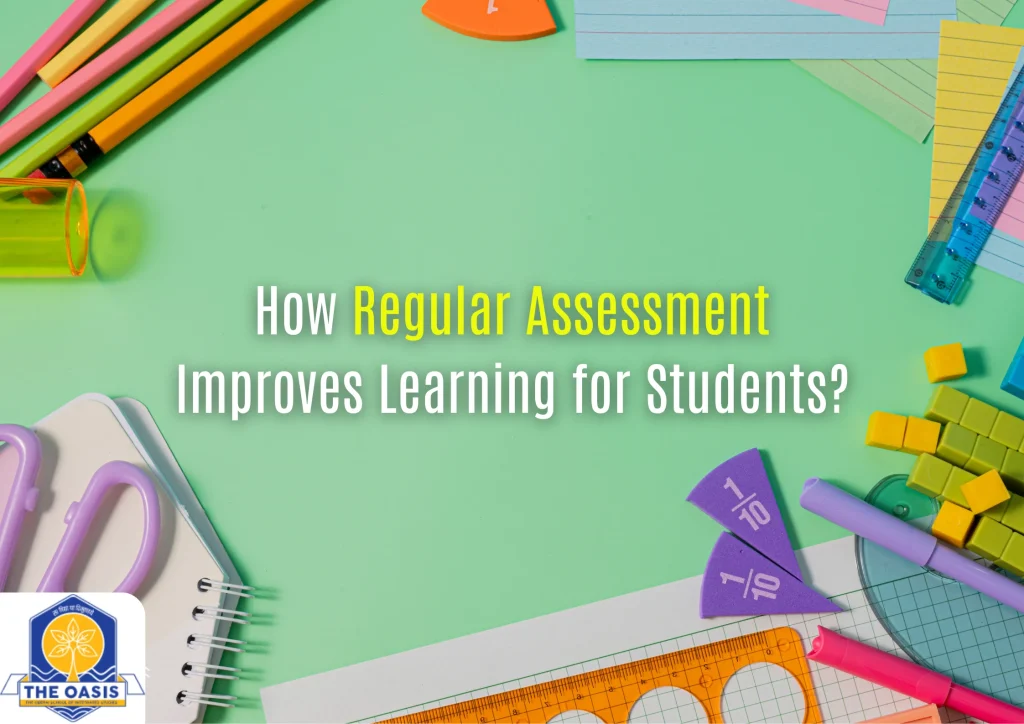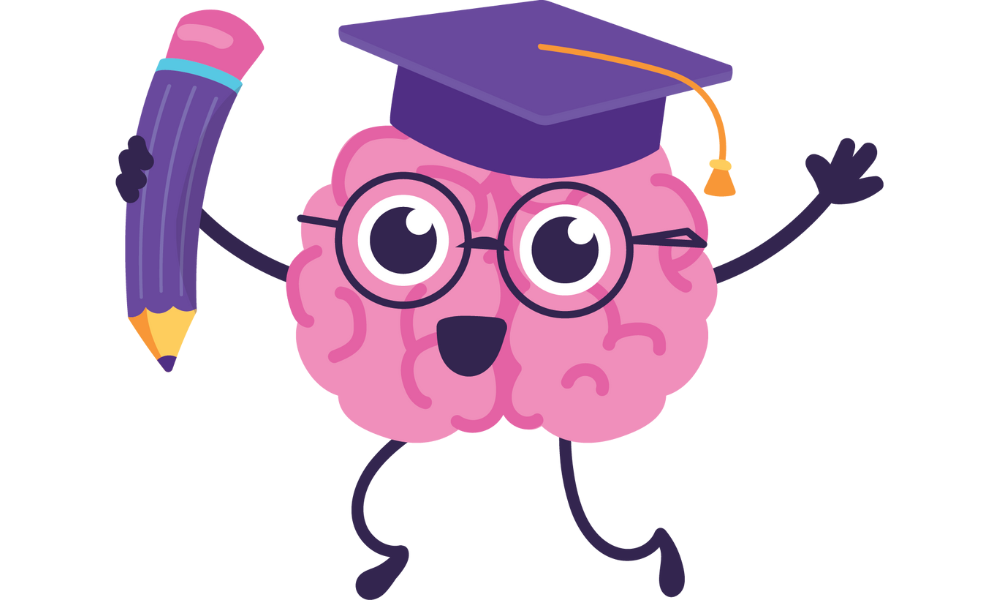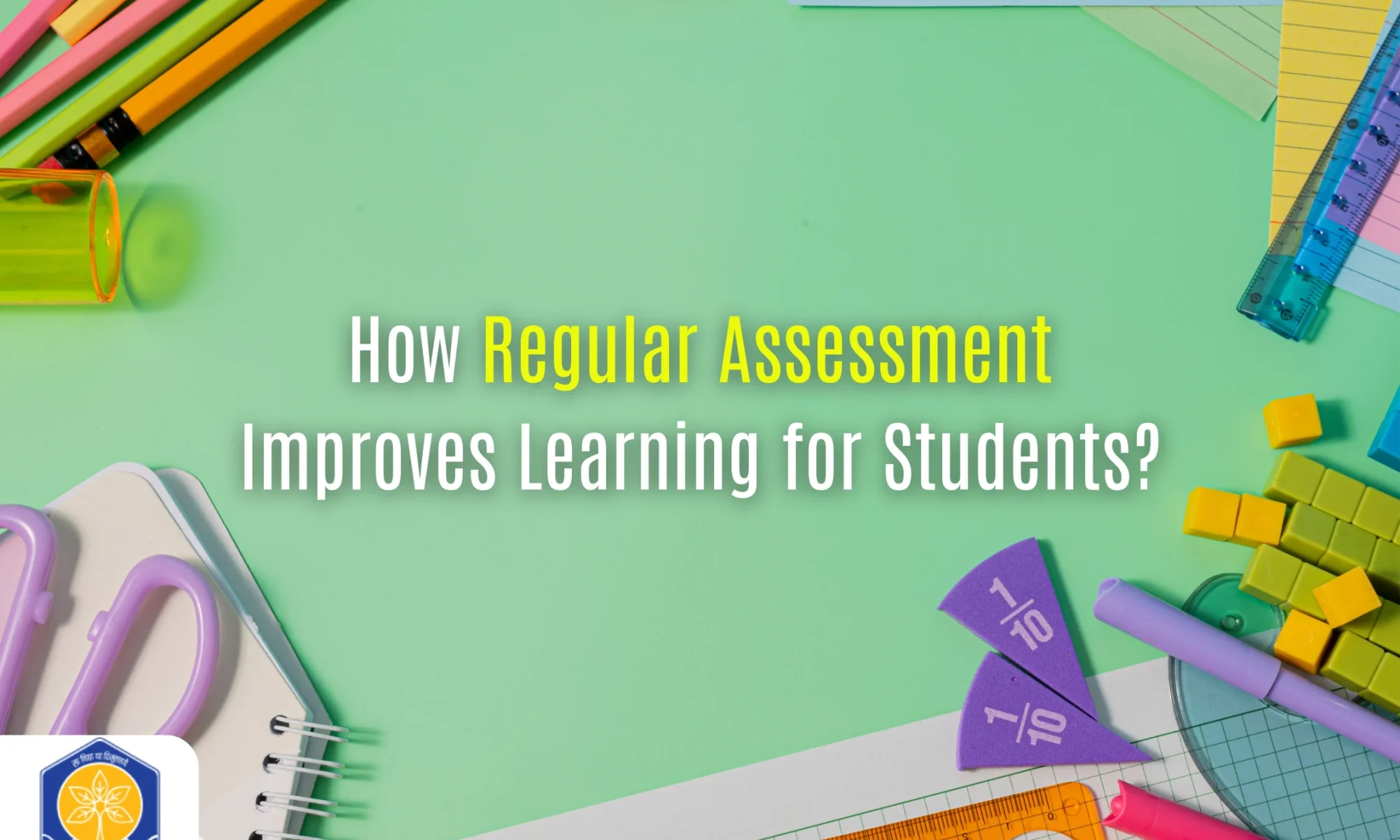
In today’s educational landscape, simply teaching content isn’t enough—measuring progress through regular assessment has become a key factor in enhancing student learning. Regular assessment refers to frequent, planned evaluations that help track academic performance and identify learning gaps. Whether it’s a class test, quiz, or interactive activity, assessments are now tools for development rather than just grading.
Why Regular Assessment Matters ?

At the core of modern pedagogy lies the principle of feedback and reinforcement. Regular assessment allows teachers and students to evaluate progress continuously and take timely action. Here’s how it helps:
- Identifies weak areas early
- Enhances subject clarity
- Keeps students accountable
- Promotes self-reflection
- Enables timely interventions
Regular Assessment Builds Student Confidence:

Students who face assessments frequently tend to develop more confidence over time. It reduces exam anxiety, builds familiarity with question patterns, and creates a sense of preparedness. Unlike annual or term-end exams that come with high pressure, regular assessments break down the learning process into smaller, manageable milestones.
This approach is especially successful in structured learning environments like Boys Boarding Schools in India, where discipline and continuous evaluation are part of the curriculum. These schools have shown how a consistent assessment model positively impacts student outcomes.
Supports Individualized Learning Paths:

Every child learns differently. Some are visual learners, others thrive on hands-on practice. With regular assessment, educators can identify these preferences and tailor learning plans accordingly. It brings flexibility into the rigid structure of curriculum-based teaching.
Semantically related benefits:
- Better understanding of student pace
- Opportunity for personalized feedback
- Modified teaching strategies for better outcomes
Improves Teacher Effectiveness:

Regular assessment doesn’t only benefit students. Teachers gain critical insights into how well their teaching methods are working. It helps in:
- Spotting recurring mistakes in multiple students
- Adjusting lesson plans based on performance trends
- Encouraging reflection and instructional improvement
When teachers are armed with real-time data, they can become more responsive and effective.
Makes Learning Goal-Oriented:

One of the key advantages of regular assessment is that it helps students learn with purpose. When learners know they’ll be evaluated periodically, they are more likely to stay focused. This structure brings a level of seriousness and intent that can be missing from an open-ended syllabus.
Examples of goal-oriented assessment formats:
- Weekly quizzes
- Monthly projects
- Formative tests
- Oral presentations
Enhances Memory Retention:

Psychologically, frequent revision through assessments improves memory consolidation. The more often a student recalls or applies a concept, the better it is retained in long-term memory. This not only boosts academic scores but also helps apply knowledge in practical situations.
Bridges the Gap Between Effort and Achievement
Often, students put in effort but are unaware of how they’re progressing. Regular assessment creates transparency by showing a clear picture of where they stand. This bridges the mental gap between effort and achievement and motivates students to stay on track.
Encourages Constructive Feedback Loops
Constructive criticism is an integral part of growth. With regular assessments, feedback becomes timely and relevant. It empowers students to correct their mistakes and do better in the next cycle, rather than waiting until the end of the term.
Instills a Habit of Self-Evaluation
As students get accustomed to frequent evaluations, they begin to self-evaluate. This internal motivation is powerful. Students no longer study just to pass; they study to understand. This change in mindset is a true indicator of educational progress.
Frequently Asked Questions (FAQs)
Ques 1. Why is regular assessment important?
Ans. It identifies learning gaps, helps track progress, and improves student outcomes through timely feedback.
Ques 2. What is the focus of regular assessment?
Ans. To enhance learning through continuous monitoring rather than ranking.
Ques 3. Can regular assessment reduce exam stress?
Ans. Yes, it minimizes pressure by distributing evaluation throughout the year.
Ques 4. How does feedback work in assessment?
Ans. Feedback helps students understand mistakes and areas needing improvement.
Ques 5. How can teachers manage regular assessments in large classes?
Ans. Using digital tools and group evaluations can save time and improve accuracy.




